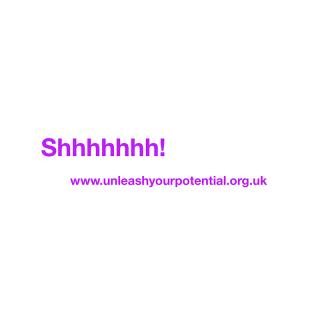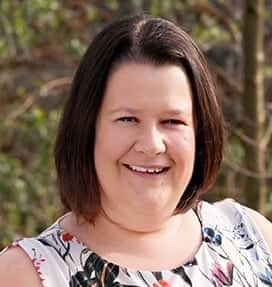Do you find yourself thinking things through and finding you talk yourself into a bit of a state at times. Do you mull things over, weigh up options, talk yourself into something, then talk yourself back out. Maybe you look in the mirror and the chatter starts, maybe after a day at work, or any other time you can recall. Dilemma’s are a challenge – and often result in increased unhelpful internal chatter. Phrases such as ‘don’t be stupid you can’t do that’ or ‘WTF did you do that for?!’ or ‘I really don’t know what to do for the best…’ pop into our heads. Maybe you’ve had some of the negatives stuff on auto-reply too … negative internal chatter can be soooooo exhausting.
Our minds are a wonderful thing – they do so much for us (they run our body, control our hormones, take charge of our breathing, our heart beat, and a ton more unconsciously, as well as giving us the power of thought, reason and to be courageous!) We still only know a small amount of what the mind does. But we do know is that if you can change the way you communicate with yourself, you can start to quieten the inner critic.
What is internal dialogue or self talk?
In NLP terms we talk about internal dialogue or self-talk – some people think of it as simply ‘thinking’ or ‘thoughts’ – others call it internal chatter (whether helpful or not) – what matters not is the label that you put on it at this stage. Self-talk is very valuable. Some refer to less helpful chatter as a protection mechanism – sometimes they are expressions of inner beliefs that might be holding you back. In the context of negative internal chatter, I find most people talk about 3 types of unhelpful chatter;
- Being critical of yourself (e.g. “why did you do that, you stupid woman”)
- You believe something all of the time (e.g. I can’t do that); this can be changed with an NLP technique called the Submodalities Belief Change in minutes – so that you believe the complete opposite of the belief that was previously holding you back (e.g. I can totally do that).
- You could have an internal conflict between 2 parts of you (e.g. part of me believes I can do ‘x’ and part of me doesn’t). The parts that are in conflict actually both have your best interests at heart – but at a lower level, the behavioural level, they are opposed – this is extremely common. Here we could use the NLP technique called ‘Parts Integration’ (which we teach on our NLP Practitioner course) that brings the parts together at an unconscious level – the result of which, there is no more internal chatter.
5 tips to turn down the critical chatter? 
Booking on an NLP training course is the obvious answer so you can learn the techniques that millions of people like you and I all over the world use to help their internal chatter. What can you do in the meantime? – here’s 5 tips that I think will help , but before you get into those, just pause for a moment, if a mother spoke to her child in public the way you sometimes talk to yourself, you’d not be impressed, right? – so firstly, maybe you need to think about what and how you are communicating with yourself (a sobering thought isn’t it?) … so there are the 5 tips ….
- Change the tone in which you talk to yourself -If you are experiencing negative internal chatter, practical things you can do include changing the tone of the voice you use in your head, so it’s not so serious (Richard Bandler has apparently suggested Donald Duck or Mickey Mouse tones work well – I’ve never tried it myself – but you get the general gist). The essence here is that you do it in a funny voice, as a way of interrupting it so that you don’t take it seriously
- Use questions to challenge it – for example, who says that’s true? how do I know that’s true? what do I mean by that? compared to who or what? where, when, who specifically? what would happen if you could? etc (these are what in NLP, we call meta model questions – helping you get more specific – in this scenario they will start to plant seeds of doubt).
- Changes it to past tense – take what you are saying in your head, write it out, and then reword it so that it’s in the past (for the NLP’ers amongst you – this is changing the temporal linguistic presupposition – for the people not yet trained in NLP, we teach this on the NLP Practitioner course – it’s really easy when you know how to do it!).
- Put it in the third person – rather than “I’m a failure” – change it to “she is a failure” – this just puts some distance between you and the comment you are making (in NLP terms this is taking it from associated to disassociated).
- Insert a ‘but’ – the thing with about putting a ‘but’ in a statement, is that the ‘but’ cancels out what came before it and focuses the mind on what comes after it – e.g. I’m such as mess, but I’m a great person (for the NLP’ers this is a pattern interrupt, which again we show you have you use elegantly on the NLP Practitioner course).
Ready to learn more? Curious about our NLP Courses?
I hope this blog helps change the way you talk to yourself and how you feel – I’d love you see some of you on our certified courses, so that we can start to change your thinking and help you change your results for good!
- the 2 day NLP Business Diploma is great for you if you’re in business – maybe you’re aspiring to set up a business, already own a business, work for another organisation as a leader or are an aspiring leader – it contains powerful techniques that will change the way you do business – for the better – this is a great value course for those new to NLP in business
- the 2 day NLP Diploma is a great introduction for those interested in personal development and life coaches who are looking to get the edge over their competition – learn some powerful goal setting techniques, powerful story telling, how to build rapport with anyone (even if you don’t like them!) – and a ton more!
- our ABNLP certified 7 days NLP Practitioner course is where you undertake your own personal change and learn how to do this with others (particularly useful for leaders, coaches, aspiring business owners) – this is where we start to help you change your thinking so that you can change your results -a truly transformational course – seriously!
____________________________________________________________________
Laura is passionate about helping people realise their potential, and achieve the results they deserve. If you’d like to find out more about Unleash Your Potential, you can check out our NLP courses, coaching options, and link up with us via our Facebook page, follow us on Twitter or link up with Laura via LinkedIn. You can of course also email us at: [email protected]


